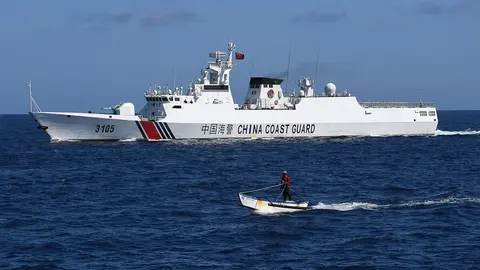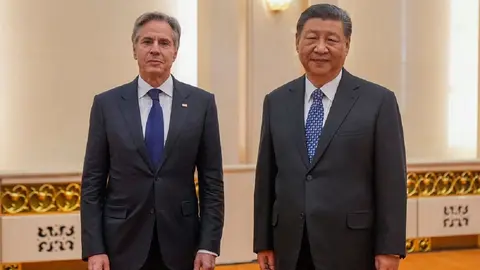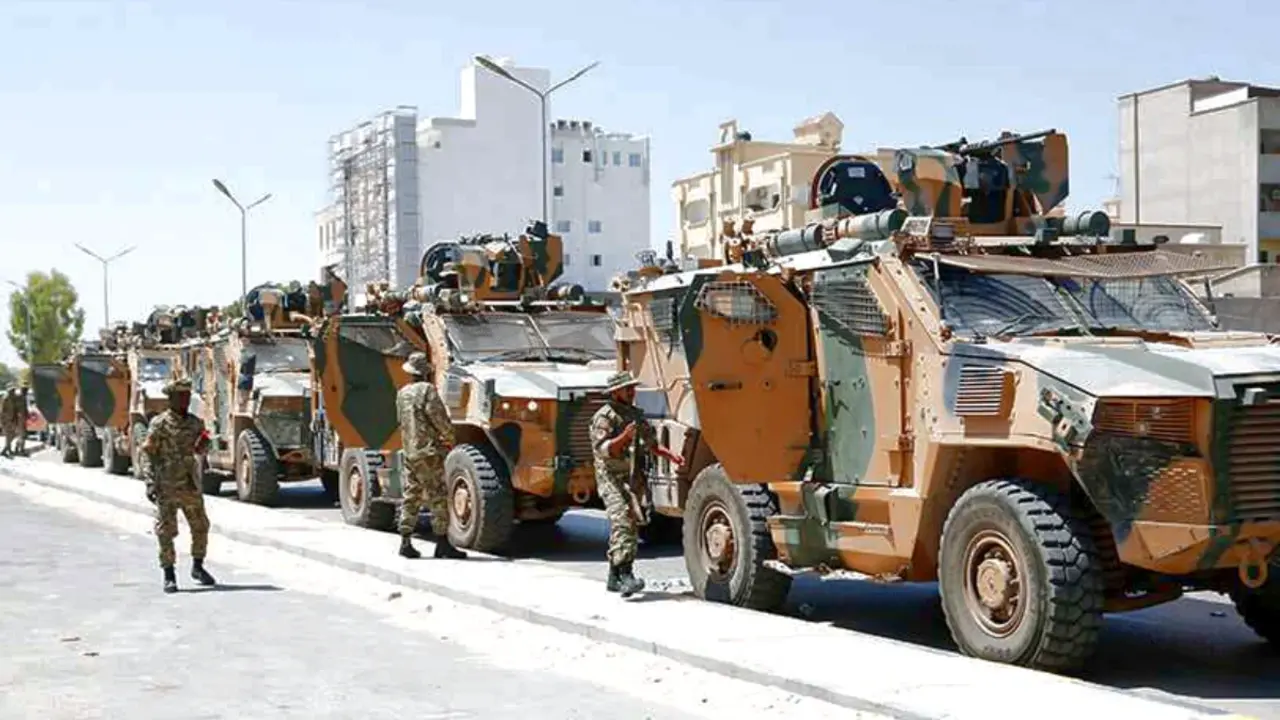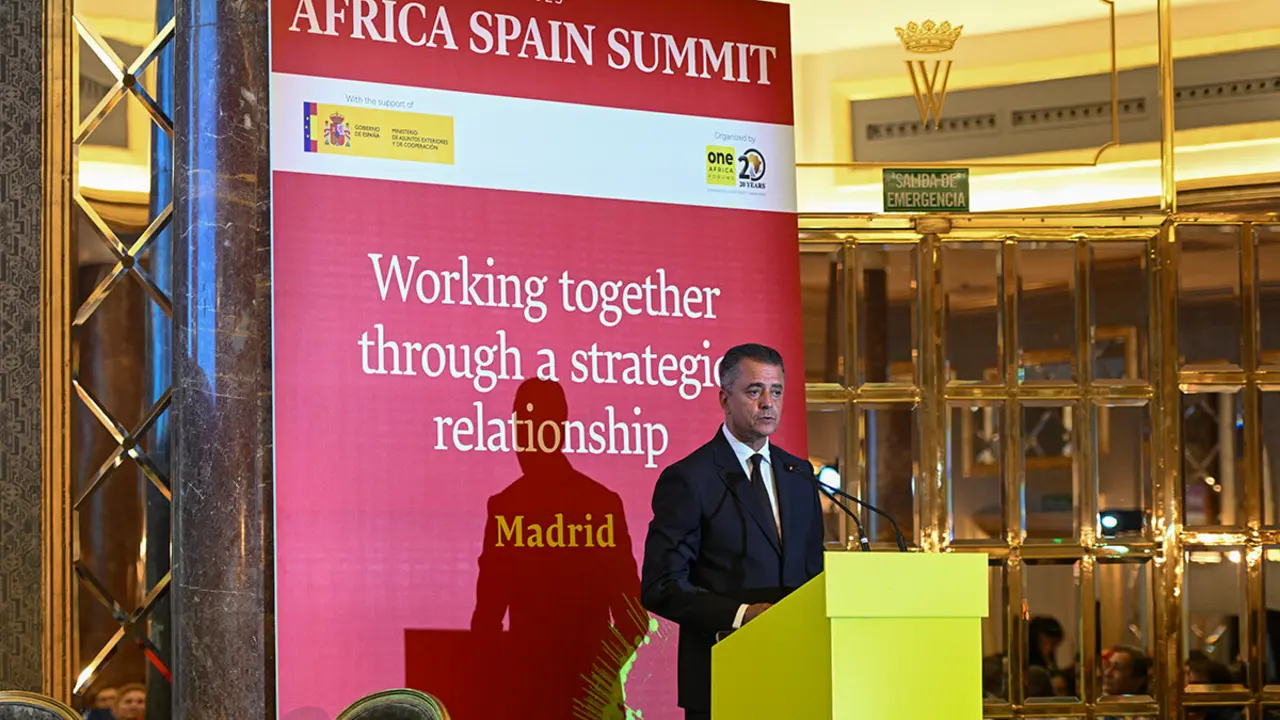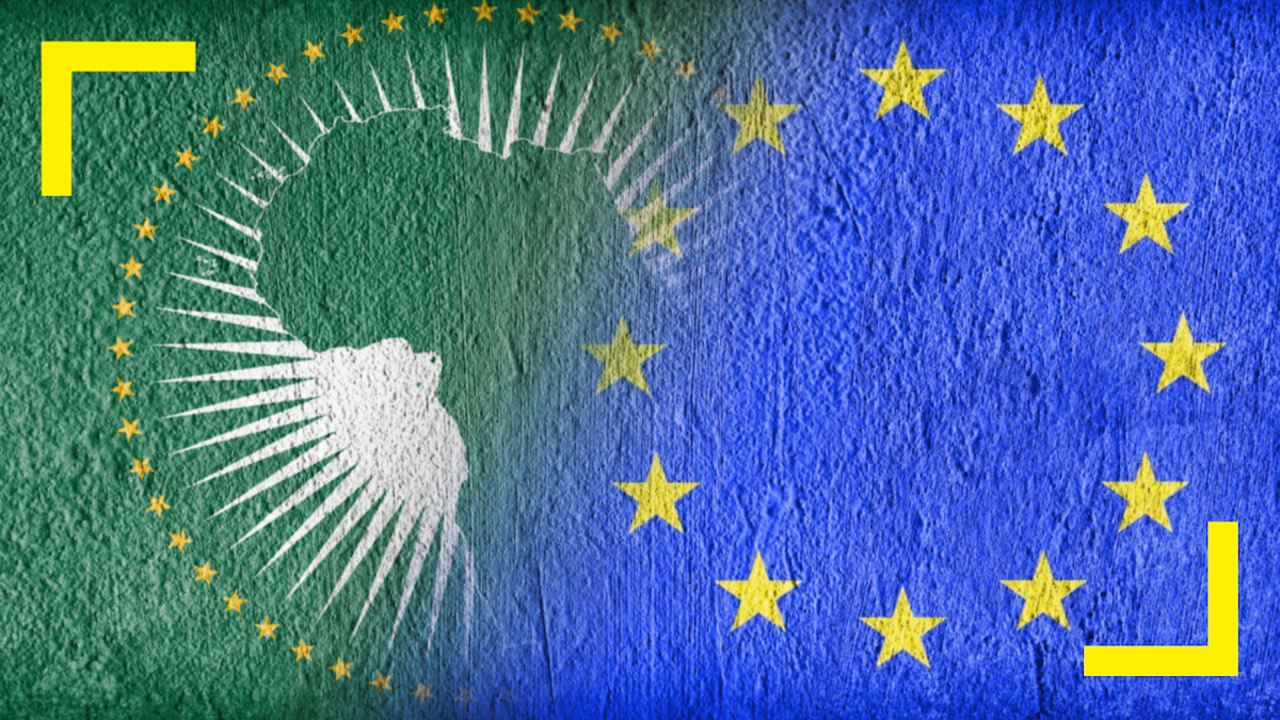China deploys "punishingly strong" military exercises near Taiwan
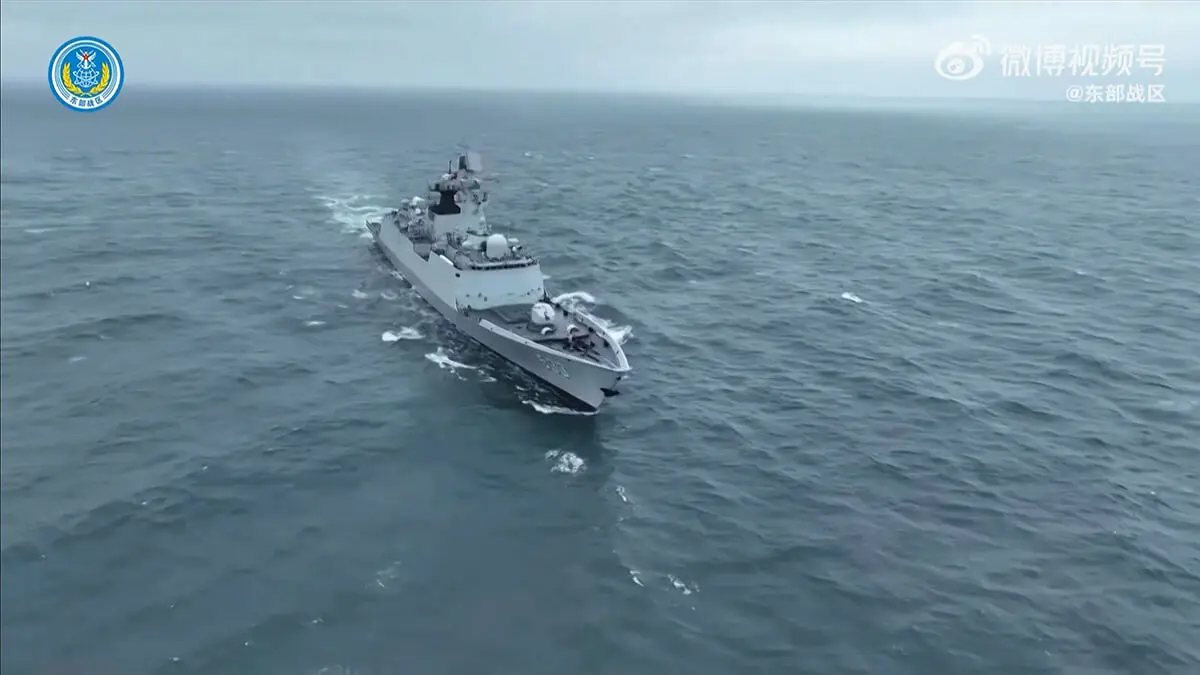
China encircles Taiwan. Tension is growing around the autonomous island, which the Chinese regime seeks to control completely.
The Chinese army has surrounded Taiwan three days after the inauguration of new President William Lai Ching-te. China considers the new Taiwanese leader a "secessionist" and a "troublemaker", and he is an uncomfortable figure for the Chinese communist regime.
The Chinese military manoeuvres are intended to impose a "strong punishment" against what the People's Republic of China considers "separatist forces seeking independence".
Colonel Li Xi, a spokesman for the Chinese military, said the two-day manoeuvres began early on Thursday to encircle the north, south and east of Taiwan and will consist of "joint sea-to-air combat readiness patrols, joint seizure of comprehensive battlefield control and joint precision strikes against key targets".
The presidential election of a new sovereign leader who directly challenges China has prompted Beijing to flex its military muscle by deploying aircraft and ships to threaten Taipei.
In his inauguration speech, William Lai Ching-te urged China to stop its constant threats and military pressure. "Taiwan cannot make any concessions on democracy and freedom," said the doctor, who has just inaugurated a third consecutive term for the Democratic Progressive Party (DPP).
The current Taiwanese government has a more pro-independence profile than Lai's political beginnings. William Lai Ching-te went so far as to call himself a "pragmatic worker for Taiwan's independence".
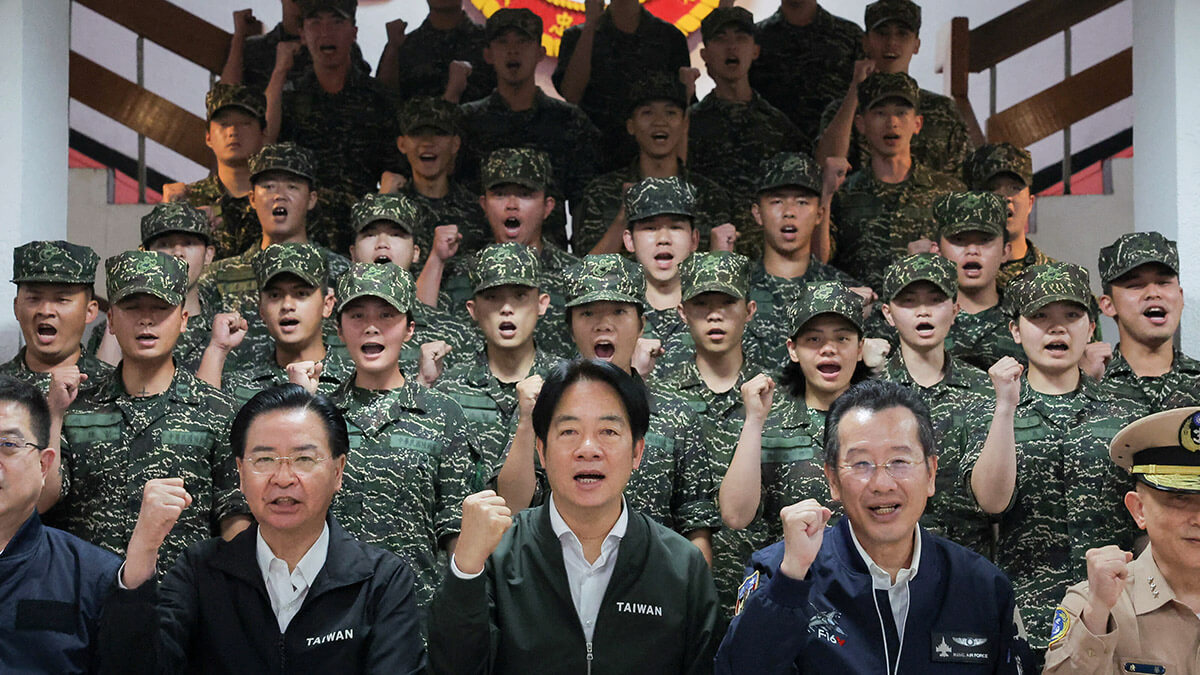
Hong Kong and Taiwan: Chinese aspirations
China seeks de facto to reclaim a territory it considers its own, namely the island of Taiwan. In the same way that China took control of Hong Kong, which is a self-governing territory under Chinese rule after the end of British control. Hong Kong belonged to the Chinese Empire for centuries, but in the mid-19th century European powers came to China's shores to establish trading centres, such as Macao and Hong Kong, and after several wars, an agreement was reached in 1898 between China and the UK that Hong Kong became a British-run region for 99 years.
Over the years, Hong Kong and China developed their trajectories differently. The People's Republic within a one-party communist system and Hong Kong as a Western-style, capitalist, self-governing territory.
In the late 1990s, the time limit of the agreement came to an end and the UK could no longer control the territory. The Hong Kong economic elite, for their part, wanted access to a growing Chinese market, but without losing the political and economic autonomy they had gained under British control. Following negotiations that began in the mid-1980s, in the 1990s the Congress of the Communist Party of China adopted the Basic Law of the Hong Kong Special Administrative Region.
This Basic Law (which is considered the constitutional text of the region) is based on what Deng Xiaoping called the "one country, two systems" model. A two-tier China, with a different model for the autonomous territory economically, socially and politically. Article 12 of the Law states that "the Hong Kong Special Administrative Region is a local administrative region of the People's Republic of China, which shall enjoy a high degree of autonomy under the Central People's Government" and is an inalienable part of Chinese territory.
As for Taiwan, Beijing sees the island as part of its own territory, now a kind of rebel republic that will rejoin the Chinese mainland sooner or later. But much of the Taiwanese population does not want to join today's China, where a one-party communist regime reigns. This is similar to what happened in the past with Hong Kong, where there were citizen protests to prevent reunification with the People's Republic of China.
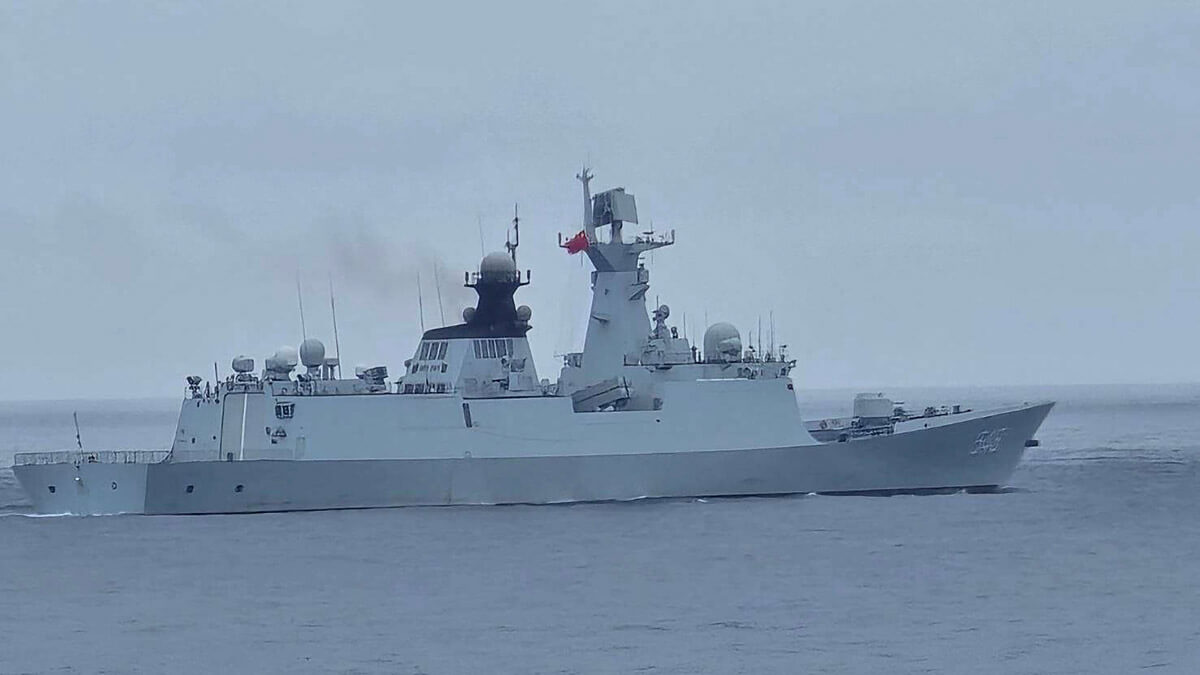
Taiwan sees itself as an independent, democratically governed country, although it has never officially announced its independence.
And tensions are growing over Chinese annexationist desires. In fact, several analysts see this situation as a dangerous flashpoint that could trigger a war if other countries become involved at Taiwan's request in the face of possible Chinese aggression. In the style of the West interceding in one way or another with Russia over the Russian invasion of Ukraine.
In a bit of history, Taiwan passed into Japanese hands after the Japanese victory in the Sino-Japanese war of 1895. But after the Japanese defeat in World War II, Japan relinquished control of several occupied territories in China.
The then Republic of China, one of the victors in that war, began to rule Taiwan with the consent of allies the United States and the United Kingdom. But China's civil war, which began in 1927, continued after World War II and, a few years later, the troops of Chiang Kai-shek's government were defeated by the communist forces led by Mao Zedong and the communist regime that has evolved to the present day was established in China.
Some of the defeated forces, led by Chiang Kai-shek, fled to the island of Taiwan to establish the Republic of China. Chiang Kai-shek's son, Chiang Ching-kuo, seized power to succeed his father and ended the existing dictatorial regime to open a democratisation process over the following decades.
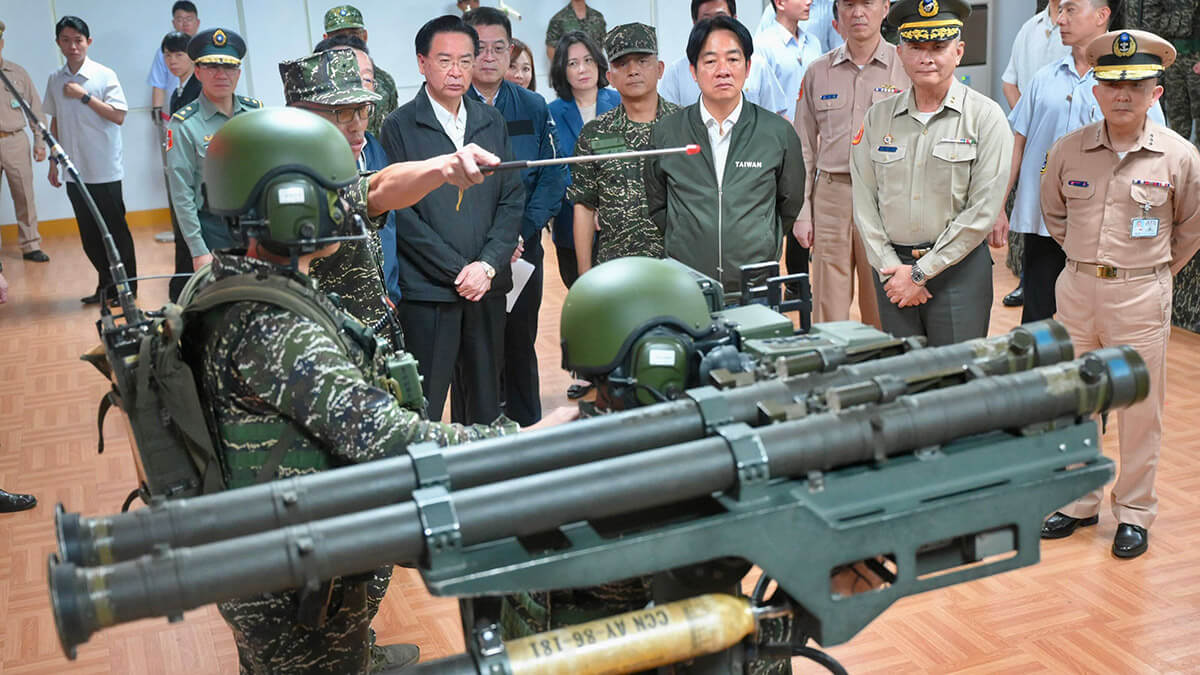
The 1980s saw rapprochement between China and Taiwan. The communist regime again offered the Hong Kong-style "one country, two systems" formula, but it was not accepted, although the technical war that had been open was closed in 1991 and there was a growth in trade and political relations.
Despite the relaxation of the situation, China continues with its aspirations to dominate Taiwan, rejected by the various Taiwanese leaders, such as former president Tsai Ing-wen, who was totally opposed to the Chinese thesis, in the same style as current president William Lai Ching-te, which has once again made the situation very tense.
This is where the other great pole of power in the world comes into play, along with China, which is the United States. The US does not have strong diplomatic ties with Taiwan, but has announced on several occasions that it is aligning itself with the Taiwanese side to the extent of offering defensive equipment and diplomatic support.
China regards Taiwan as a breakaway province and is committed to reunification, by force if necessary. Taiwan, on the other hand, claims that it is a sovereign state rather than a Chinese province. Positions remain sharply divided.

